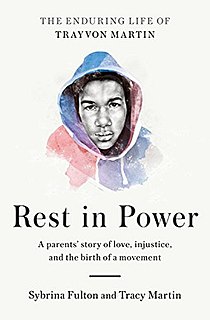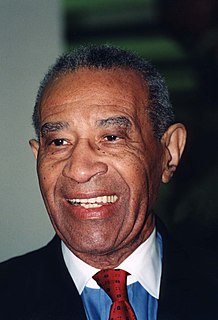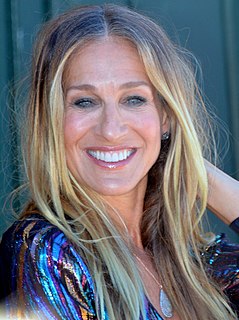A Quote by Jessye Norman
I would like to see more African-American singers as part of our opera companies. If you take music and the arts out of the public schools, then you're going to lose a lot of people that you might have discovered were talented, very early.
Related Quotes
I worry that the weakness - particularly of our public schools - is going to make that less and less true for everybody. And if we ever lose that as our core, then we're going to lose our confidence. We're not going to lead. We're going to protect. We're going to turn inward. That would be very bad for the world. So as a former Secretary of State, I think I can advocate for education as a national security priority.
I would definitely like to see the education process more enhanced in African-American communities, because we need to be educated on laws that are relevant to our communities and our people, as well as to any other ethnic groups. A broader view of how people perceive African-American boys and girls in this country is what I'd like to see.
I used to take musical instruments home from elementary school. There were some music teachers there - we all learned instruments. A lot of us got started in public schools. Charlie Parker and Bud Powell, for example. But now there are no more music teachers in public elementary schools. It's like (Senator) Moynihan said, 'benign neglect.' Just let it rot and fester.
The arts were a big part of my childhood. We went to the theatre and opera a lot as a family. We were not at all wealthy, but it was at a time when the arts were publicly funded and there were free tickets available. For someone like myself who wasn't that academically inclined, it was a great escape.
Early American music and early folk music, before the record became popular and before there were pop stars and before there were venues made to present music where people bought tickets, people played music in the community, and it was much more part of a fabric of everyday life. I call that music 'root music.'
We live in an age of music for people who don't like music. The record industry discovered some time ago that there aren't that many people who actually like music. For a lot of people, music's annoying, or at the very least they don't need it. They discovered if they could sell music to a lot of those people, they could sell a lot more records.
When a drug comes out [that's broadly prescribed] there are going to start to be a lot of people on it [in a million person cohort] and you might get therefore an early signal of something unexpected that hadn't come through in the clinical trials. And I'm sure [drug companies] would love it if, in fact, FDA, recognizing that, would say, OK, maybe you don't have to do your trial with 30,000 people because we're going to find out shortly after registration because we'll have a lot of people taking the drug and we'll be able to see what happened using PMI.
Well, I'm telling them two things. One is that, look, this is going to be something when the American people realize - once it's passed - that, A, it does take care of preexisting conditions; B, you're insurance rates aren't going to skyrocket; C, the insurance companies aren't going to be running the show like they were before; D, you're going to be in a position where you can keep your insurance that you have. That once the American public realizes that, you're going to get a reward for this. They're going to be rewarded.
African American children are significantly more likely to be obese than are white children. Nearly half of African American children will develop diabetes at some point in their lives. People, that's half of our children. ...We can build our kids the best schools on earth, but if they don't have the basic nutrition they need to concentrate, they're still going to have a challenge learning.
I was not especially enthusiastic about opera when I was young, and I thought I would never write one. I felt it was an art form of the past, with expensive singers exposing their high notes, and bad theater, and ridiculous stories which don't concern us. But then little by little I realized that it can be defined very differently, that on the contrary opera can be something profound and not superficial - a wonderful meeting point for all the other arts.
A lot of charter schools are non-union schools that take a lot of teachers from alternative tracks, like Teach For America. They do this in part because a lot of charter schools have very strong ideologies around how they want teachers to teach. And they find that starting with a younger or more inexperienced teacher allows them to more effectively inculcate those ideas.
I used to work in the cotton fields a lot when I was young. There were a lot of African Americans working out there. A lot of Mexicans - the blacks and the whites and the Mexicans, all out there singing, and it was like an opera in the cotton fields, and I can still hear it in the music that I write and play today.




































